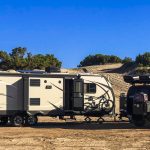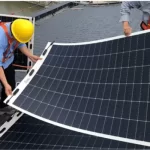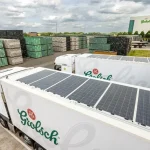Switching to solar energy is one of the most impactful steps homeowners can take to reduce energy costs, minimize their carbon footprint, and achieve energy independence. Solar panels for homes have become more efficient, affordable, and versatile, making them an attractive option for modern households. With numerous advancements in technology and government incentives available, the transition to house solar power is easier than ever.
This guide will walk you through the essentials of installing solar panels for your home, from evaluating suitability to understanding Net Metering and exploring flexible solar panels for roofs. Whether you’re just starting to explore solar power for your home or ready to invest, this guide offers actionable insights to make an informed decision.
Is Solar Energy Right for Your Home?
When deciding to install solar panels for your house, several factors come into play:
Climate and Sunlight Availability
Solar panels work efficiently in most climates, but regions with consistent sunlight offer the best results. Even cloudy areas can generate significant power, thanks to modern high-efficiency panels.
Roof Suitability
Ideal roofs for solar panels are south-facing with a slope between 15 and 40 degrees. Additionally, the roof’s condition and material should be assessed; roofs nearing the end of their lifespan may require replacement before installation. Flexible solar panels for roofs, like those offered by Sungold Solar, can be a viable solution for curved or irregular surfaces.
Shade and Obstructions
Large trees, chimneys, or nearby buildings casting shadows on your roof can significantly impact the energy output of your solar panels. A professional assessment can determine the shading impact and suggest mitigation measures, such as trimming trees or optimizing panel placement.
Ownership and Alternatives
If you don’t own your home or have a roof that isn’t suitable, consider community solar programs, which allow you to purchase or lease shares in a shared solar farm.
Understanding Home Solar Systems: Types and Options
A variety of solar panel options are available for residential use, each suited to different needs and applications:
Traditional Glass-Laminated Panels
These durable panels are ideal for rooftop installations and provide excellent efficiency and long-term reliability.
Flexible Solar Panels for Roofs
Made with lightweight materials like ETFE, flexible solar panels are designed for irregular or delicate surfaces, including RVs, boats, and unconventional roof designs. Products like Sungold’s PA621 series feature advanced technology, including high-temperature resistance and zero-hot-spot technology, ensuring optimal performance even in challenging conditions.
Solar Plus Storage
For homeowners seeking energy independence, combining solar panels with a battery storage system allows you to store excess energy for use at night or during outages.
How Much Energy Can Solar Panels Generate for Your Home?
The amount of energy your home solar system can generate depends on factors like system size, panel efficiency, and local sunlight conditions. Tools like the NREL’s PVWatts Calculator can provide preliminary estimates based on your location and roof specifications.
High-Efficiency Panels
Panels like Sungold’s SP series achieve conversion efficiencies of up to 23.8%, maximizing energy production even in smaller installations. A typical residential solar power installation can offset a significant portion of your electricity bill while reducing reliance on the grid.
What Are the Costs and Incentives for Solar Power Installations?
Upfront Costs
The cost of solar power for your home varies by system size and complexity. While the initial investment may seem substantial, declining prices for solar panels and flexible financing options make solar energy more accessible than ever.
Government Incentives
The federal Solar Investment Tax Credit (ITC) allows homeowners to deduct a percentage of their solar installation costs from their taxes. Many states also offer additional rebates and incentives.
Long-Term Savings
House solar power systems typically pay for themselves within 7–10 years through reduced utility bills. Net Metering policies further enhance savings by allowing homeowners to earn credits for excess energy fed back into the grid.
What Is Net Metering and Why Does It Matter?
Net Metering is a billing mechanism that credits homeowners for surplus solar energy their system generates and feeds back into the grid. For instance, during sunny afternoons when your system produces more energy than your home uses, your utility company may compensate you with bill credits.
Net Metering policies vary by state and utility, so it’s important to understand the terms in your area. This feature significantly enhances the financial viability of solar power installations, particularly for homes with high energy needs.
How to Choose and Install Solar Panels for Your Home
Evaluate Installers
Choose a certified installer with a strong track record. Organizations like NABCEP provide industry-standard certifications to ensure quality installations.
Compare Quotes
Request quotes from multiple providers to compare costs, warranties, and panel options. Online tools can help you identify pre-screened local providers.
Consider Maintenance
Solar panels generally require minimal maintenance, but occasional cleaning and inspections ensure optimal performance. Flexible solar panels, with their lightweight and durable design, often require even less upkeep.
Can Flexible Solar Panels Be a Good Option for Homes?
Flexible solar panels are particularly suited for homes with unconventional roof designs or areas where traditional panels are impractical. These panels, such as Sungold Solar’s lightweight series, are easy to install and offer robust performance despite their low profile.
Advantages include:
Easy Installation: Can be mounted without heavy brackets or drilling.
Lightweight Design: Ideal for balconies, temporary setups, or fragile roof structures.
Durability: Resistant to corrosion, hail, and high temperatures.
Why Go Solar Now?
Solar power for your home is not just an investment in sustainable energy but also a cost-saving measure that increases property value. With flexible solar panels and innovative technologies, solar power installations are now more versatile and efficient than ever.








